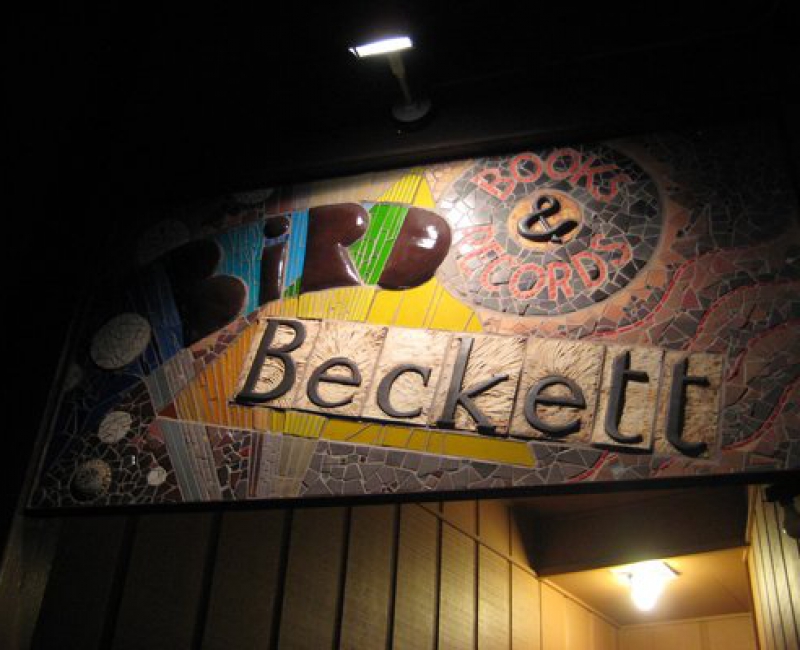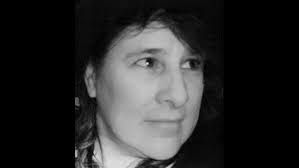653 Chenery Street
in San Francisco's Glen Park neighborhood
1-415-586-3733
[email protected]
Open to walk-in trade and browsing
Tuesday to Sunday
noon to six
Live Streams every weekend!
Refresh your browser
to catch a show in progress!
Visit our Facebook page or
YouTube channel!
But nothing beats being in the room
with the music & the musicians!
Dineh man, editor, poet.
Chickasaw woman, two-spirit, language warrior.
Cherokee laureate.
Who wouldn’t want to come to Bird & Beckett for that!?
(Sorry, but airline problems have interfered with Jenny Davis’s travel plans, and she won’t be able to make the reading on Sunday! So Kim has recruited EK Keith to pinch hit! No tragedy, that! EK is a local hero, a wonderful poet and a deep soul! A teacher by day, a bohemian by nature, we all love EK!)
 The poems in Bojan Louis’s poetry collection, Currents, explore American identity and the powers of myth, faith, doubt, and the environment, and the music of these poems resonate with strains of the English, Spanish, and Diné languages. Louis, who has worked as a construction worker and electrician, moves fluently between the literal and symbolic dimensions of work, as he writes in the poem “Electricity”: “Any laborer gathered for a tear-out / agrees the pleasure of opening walls/is the view of what’s no longer behind.”
The poems in Bojan Louis’s poetry collection, Currents, explore American identity and the powers of myth, faith, doubt, and the environment, and the music of these poems resonate with strains of the English, Spanish, and Diné languages. Louis, who has worked as a construction worker and electrician, moves fluently between the literal and symbolic dimensions of work, as he writes in the poem “Electricity”: “Any laborer gathered for a tear-out / agrees the pleasure of opening walls/is the view of what’s no longer behind.”
“It takes only the ring of the opening poems in CURRENTS to realize this book does exactly what one hopes a first book will do, bring alive a new, original voice. It’s a voice Bojan Lewis not only sustains, but builds, the way, say, a young Sonny Rollins, might shape and vary a singular solo that flows through song after song: raw, kinetic, authentic, a poetry in which language has in common with music the visceral feel of the breathing body behind it.”—Stuart Dybek
“Bojan Louis’ CURRENTS is piercing and polyglot. From the first stark poem, spoken in the voice of a hard-living construction worker in Alaska who regards the sea and thinks of Jonah (‘bowel-held / and undigested’), to the last in the voice of Xipe Totec (Nahuatl for Our Lord The Flayed One, as Louis’ useful notes tell us), we are swept into a fierce and sublime poetry, part incantatory vision, part caustic critique of government cruelty and injustice toward indigenous peoples. By turns a protest of the earth’s poisoning, and as in the title poem, a prayer offered in the Diné ‘tradition and knowing,’ what CURRENTS crystallizes in these taut poetic concentrates goes straight to our souls: ‘The prayer, the prayed to, the offering / and the offered; / the bent back and the harvest.'”—Cynthia Hogue
“CURRENTS is charged and luminous under ‘butane flame dawn.’ Bojan Louis ‘stickframesnightmares’ into song — in attempt to heal and jolt awake stories in blisteringholler above his homelands of pot-holed desert highways andreservation borders. An electrician by trade, Diné poet Bojan Louis’debut is a multilingual ceremony of electricity, earth and memory,where brokenness is the ground from which our stories continuereaching for Hózhó.”—Sherwin Bitsui
 Jenny L. Davis’ forthcoming book, Talking Indian, is the first book-length ethnography of language revitalization in a U.S. tribe removed from its homelands.  In south-central Oklahoma and much of “Indian Country,†using an Indigenous language is colloquially referred to as “talking Indian.†Among older Chickasaw community members, the phrase is used more often than the name of the specific language, Chikashshanompa’ or Chickasaw. As author Jenny L. Davis explains, this colloquialism reflects the strong connections between languages and both individual and communal identities when talking as an Indian is intimately tied up with the heritage language(s) of the community, even as the number of speakers declines.
Jenny L. Davis’ forthcoming book, Talking Indian, is the first book-length ethnography of language revitalization in a U.S. tribe removed from its homelands.  In south-central Oklahoma and much of “Indian Country,†using an Indigenous language is colloquially referred to as “talking Indian.†Among older Chickasaw community members, the phrase is used more often than the name of the specific language, Chikashshanompa’ or Chickasaw. As author Jenny L. Davis explains, this colloquialism reflects the strong connections between languages and both individual and communal identities when talking as an Indian is intimately tied up with the heritage language(s) of the community, even as the number of speakers declines.
Today a tribe of more than sixty thousand members, the Chickasaw Nation was one of the Native nations removed from their homelands to Oklahoma between 1837 and 1838. According to Davis, the Chickasaw’s dispersion from their lands contributed to their disconnection from their language over time: by 2010 the number of Chickasaw speakers had radically declined to fewer than seventy-five speakers.
Davis shows how in the case of the Chickasaw Nation, language programs are intertwined with economic growth that dramatically reshape the social realities within the tribe. She explains how this economic expansion allows the tribe to fund various language-Âlearning forums, with the additional benefit of creating well-paid and socially significant roles for Chickasaw speakers. Davis also illustrates how language revitalization efforts are impacted by the growing trend of tribal citizens relocating back to the Nation.
TAKE OUR SURVEY
To take our SURVEY, click here, and help the BBCLP get to know you better! As Duke Ellington always said, we love you madly...
The Bird & Beckett Cultural Legacy Project

Our events are put on under the umbrella of the nonprofit Bird & Beckett Cultural Legacy Project (the "BBCLP"). That's how we fund our ambitious schedule of 300 or so concerts and literary events every year.
The BBCLP is a 501(c)(3) non-profit...
[Read More ]
The Independent Musicians Alliance
Gigging musicians! You have nothing to lose but your lack of a collective voice to achieve fair wages for your work!
The IMA can be a conduit for you, if you join in to make it work.
https://www.independentmusiciansalliance.org/
Read more here - Andy Gilbert's Feb 25 article about the IMA from KQED's site





